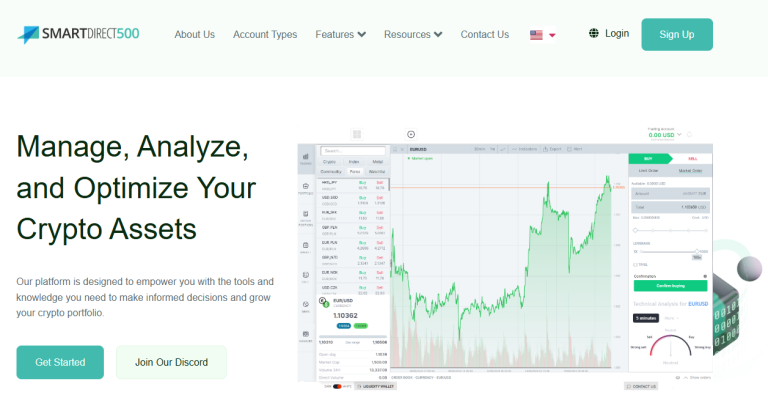How to Use Business Credit to Buy a Car : Expert Tips & Tricks
How to Use Business Credit to Buy a Car? To use business credit to buy a car, establish a strong business credit profile. Then, apply for a business auto loan.
Using business credit to buy a car can be a smart financial move for many entrepreneurs. A vehicle is often crucial for business operations, whether for client meetings, deliveries, or other professional activities.
By leveraging business credit, you can keep personal and business finances separate, potentially improving cash flow and financial management. Establishing good business credit requires time and consistent financial responsibility.
Once achieved, it opens doors to various financing options, including auto loans specifically tailored for businesses. This approach not only helps in acquiring necessary assets but also contributes to building a robust business credit profile for future financial needs.
Introduction To Business Credit
Business credit is a credit line for a company. It is different from personal credit. Companies use it to get loans or buy things.
Business credit depends on the company’s financial history. Good business credit helps companies get better loan terms.
Using business credit to buy a car has many benefits. It keeps personal finances separate from business finances. This makes accounting easier.
Business credit can also offer better interest rates. A company with good credit may get a better deal. This can save money over time.
Building Strong Business Credit
Create a separate business entity. This can be an LLC or corporation. A separate entity helps in building business credit. Ensure your business is registered with the state. Obtain an Employer Identification Number (EIN). Open a business bank account. Use this account for all business transactions. This will help in tracking expenses.
Pay all business bills on time. Timely payments improve your credit score. Keep credit card balances low. High balances can hurt your credit. Monitor your credit report regularly. Look for any errors and fix them quickly. Use credit responsibly. This shows lenders you are trustworthy.
Finding The Right Lenders
Banks and credit unions offer business loans for car purchases. They often have strict requirements. You may need a good credit score. Some banks require collateral. Credit unions might offer lower interest rates.
It’s wise to compare different options. Ask about loan terms and fees. Make sure to read the fine print. Online lenders can be more flexible. They might approve loans faster. Online applications are usually simple.
Interest rates can be higher. Always check for hidden fees. Read customer reviews before choosing. Compare multiple online lenders. This helps you find the best deal. Ensure the lender is reputable and trustworthy.
Evaluating Loan Options
Interest rates can vary from lender to lender. Always check the annual percentage rate (APR). Lower APR means lower monthly payments. Loan terms also matter. Shorter loan terms often have higher monthly payments.
But they save you money on interest. Longer loan terms have lower monthly payments. But you pay more in interest over time.Secured loans require collateral. This could be your car or another asset.
These loans often have lower interest rates. But if you fail to pay, you could lose your collateral. Unsecured loans don’t need collateral. But they usually have higher interest rates. It’s important to weigh the risks and benefits of each type.
Preparing Your Documentation
Gather your business financial statements. These include profit and loss statements. Also, include balance sheets and cash flow statements. These documents show your business’s health. They help in getting credit approval.
Some lenders ask for personal guarantees. This means you promise to pay if the business can’t. It shows you believe in your business. Be ready to sign a personal guarantee.
Negotiating The Best Deal
Dealerships offer warranty and financing options. They often have a wider selection of cars. Prices at dealerships might be higher. Private sellers may offer lower prices but no warranty. It’s important to inspect the car carefully. Buying from private sellers can be risky.
Leasing a car means lower monthly payments. You can drive a new car every few years. Buying a car builds equity over time. Leasing has mileage limits and extra fees. Buying a car means you own it outright after payments end. Both options have pros and cons. Choose based on your financial situation and needs.
Managing Your Purchase
Pay your car loan on time every month. This helps keep your business credit score high. Use reminders to avoid missing payments. Late payments can hurt your credit score. Set up automatic payments to make things easier. Keep track of each payment made.
Keep all car-related expenses well documented. Use a spreadsheet to record fuel, maintenance, and insurance costs. This helps in understanding how much the car costs your business. Proper tracking can help in budgeting better. It also helps during tax season for deductions.
Leveraging Tax Benefits
Using business credit to buy a car can offer tax deductions. Businesses can deduct the interest on the car loan. This reduces taxable income. The car must be used for business purposes. Personal use does not qualify for deductions. Keep detailed records of business use.
Businesses can also benefit from depreciation. Depreciation allows the business to deduct the car’s value over time. This provides a tax benefit each year. The car must meet certain criteria. It must be used for business more than 50% of the time. Accurate records are essential.
Common Mistakes To Avoid
Businesses often make the mistake of borrowing too much. This can lead to financial stress. Always calculate your monthly payments. Ensure they fit within your budget. Overextending can harm your credit score.
It can also make it hard to get more loans in the future. Stay within your means. Borrow only what you can repay. Car maintenance is important. Many businesses forget this. Regular maintenance keeps the car in good shape.
It also prevents expensive repairs. Always budget for maintenance costs. This includes oil changes, tire rotations, and brake checks. Neglecting these can lead to bigger problems. Take care of your car to protect your investment.
Conclusion And Final Tips
Utilize business credit wisely to finance a car, ensuring it aligns with your company’s financial strategy. Keep track of payments and maintain a good credit score for future ventures.
Recap Of Key Points
Using business credit to buy a car can save money. Ensure your business credit is strong. Check your business credit score regularly. Use a business credit card or loan. This can help build your credit further. Make timely payments to avoid penalties.
Expert Advice
Get advice from a financial expert. They can guide you through the process. Compare different financing options. Look for the best interest rates. Read all terms and conditions carefully. Avoid high-interest rates that can harm your credit.
Conclusion
Using business credit to buy a car is a smart financial move. It can help preserve cash flow. Ensure you understand the terms and interest rates. Always maintain good credit to secure the best deals. This strategy can enhance your business’s financial health and growth.







